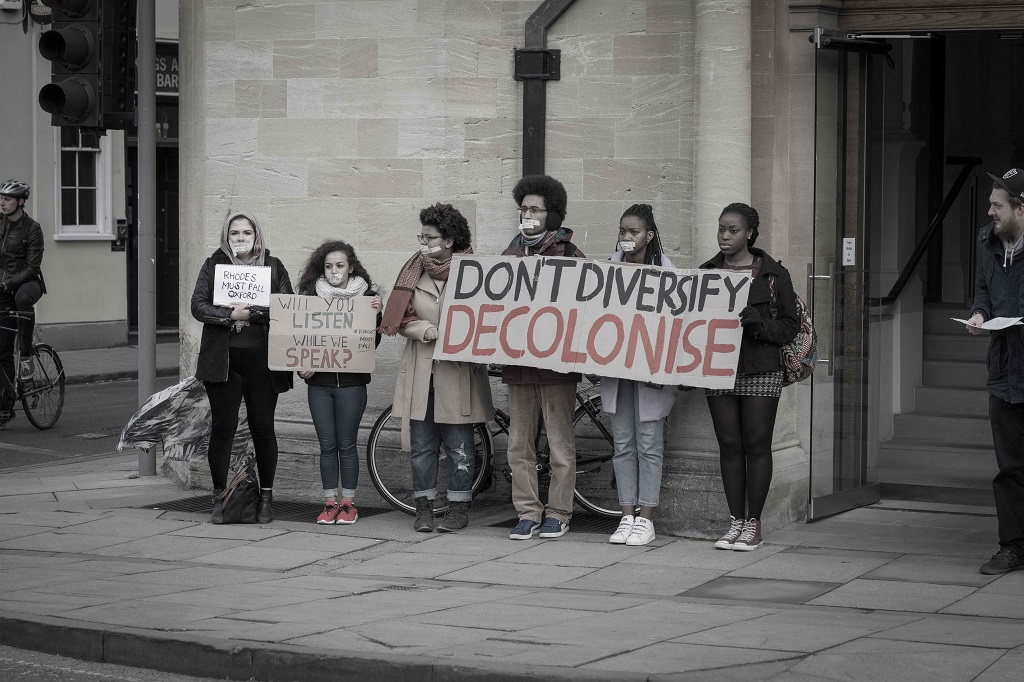Reducing ‘Drop-Out’ Rates for Black Students Means Institutional Transformation, Not Individual Support
by Remi Salisbury
18 August 2016

Earlier this year the government urged universities to reduce the ‘drop-out’ rates of Black students. With Black students 50% more likely to drop out than their peers, the universities minister Jo Johnson argued that “there needs to be much greater support” for ‘BME’ students. Yet this seems little more than rhetoric, and reflects only a superficial interest in racial equality.
The idea of ‘support’ presupposes that drop-out rates are a consequence of the failures of individual Black students. This is a misunderstanding. Rather than ‘supporting’ individual Black students, the government should turn its attention to the institutional transformation of universities.
Low retention is not the problem in and of itself. Rather, low retention rates are indicative of systemic problems. Universities are predicated on the transmission and perpetuation of white supremacy. Therefore the struggle is imagining an education that is liberatory, emancipatory, and able to bring about social progress that benefits us all.
In recent years, as more students of colour have reached university, there has been an increase in student-led campaigns, from the I too am… initiative to Why is my curriculum white?, Why isn’t my professor Black?, Rhodes Must Fall, movements to decolonise the university, the emergence of a Black Studies Association, and the introduction of a Black Studies degree at Birmingham City University. Bolstered by international movements, there is a palpable wave of dissatisfaction across the UK. Rather than relying on the abstract and uninformed musings of privileged white politicians, these movements show a real desire to bring about change that extends far beyond the empty rhetoric of Jo Johnson and the Conservative government.
What these movements have in common is a commitment to radical change in the university. The students and academics involved in these movements are not calling for ‘more support’ to survive in white supremacist institutions. They are calling for a transformation of those institutions.
Earlier this year a Warwick student returned to her halls of residence to find racist insults scrawled on her bananas. The university’s response was seen as slow and inadequate. Whilst there was some condemnation in the mainstream media, this focused largely on the individual perpetrator. Although the Warwick incident was particularly shocking, students face racial microaggressions on universities campuses on a daily basis – something the I too am… campaign sought to bring attention to. What is needed is a greater understanding of how the white supremacist underpinnings of the university creates a climate in which racism can manifest at this micro level.
As the Why is my curriculum white? initiative has demonstrated, with a Eurocentric curriculum that erases the experiences, contributions and achievements of people of colour, it is unsurprising that students of colour experience racial microaggressions, and drop-out at such high rates. In a society stratified along racial lines, race must be central to curriculums. This is not just about the tokenistic inclusion of Black scholars on reading lists, but about a movement to decolonise the curriculum.
Why isn’t my professor Black? highlighted the shocking underrepresentation of Black academics in universities, but since the launch of the campaign in 2014 the percentage of UK-national Black staff on academic contracts has stayed the same. The transformation of higher education would certainly include a radical change to the disproportionately white body of lecturers and professors. Despite Johnson’s rhetoric, however, it seems little has been done to listen to this important movement.
The Rhodes Must Fall campaign highlighted how the very architecture of universities can act to oppress and marginalise students of colour. Had Oxford university listened to campaigners they could have demonstrated a real commitment to racial equality in higher education. As events played out, however, it became clear that the will of rich white donors was far more important than the experiences of Black students. How are Black students expected to feel welcome on university campuses when those campuses memorialise white supremacy, colonialism and slave labour? Of course the Rhodes statue is just one prominent example of a problem that manifests in many institutions. At UCL for instance, students take classes in a lecture theatre named after the eugenicist Francis Galton.
If the government and universities are truly committed to improving the education of ‘BME’ students, they don’t have to look too far for a starting point. Students and academics of colour have pointed the way. All that is needed is an ability to listen and a real desire to bring about change.
Photo: George Edwards, via Warwick Globalist
–
If you want to support media for a different politics, you can donate or subscribe to Novara Media at support.novaramedia.com.